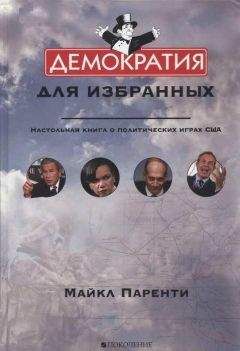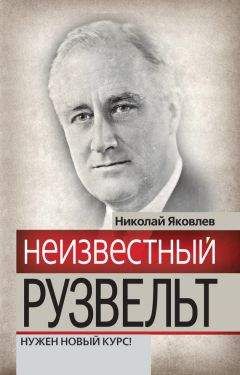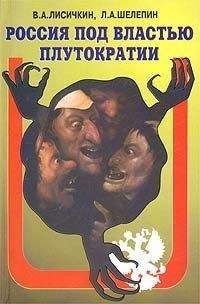Чарльз Эндрейн - Сравнительный анализ политических систем
Скачивание начинается... Если скачивание не началось автоматически, пожалуйста нажмите на эту ссылку.
Жалоба
Напишите нам, и мы в срочном порядке примем меры.
Описание книги "Сравнительный анализ политических систем"
Описание и краткое содержание "Сравнительный анализ политических систем" читать бесплатно онлайн.
Когда мы смотрим на политическую карту мира, то вряд ли нам приходит в голову мысль провести скрупулезный анализ всего многообразия существующих на Земле политических систем. Эту сложную, но выполнимую задачу поставил в своей книге профессор Ч. Эндрейн. Он не только сравнил различные политические системы, выявил общее и особенное в их функционировании, но и рассмотрел роль элит, групп и отдельных индивидуумов в проведении политического курса. Книга, пользующаяся большой популярностью в странах Запада, ныне станет доступна и нашему читателю, постоянно ощущающему потребность в учебной литературе по политическим наукам. Ее издание рекомендовано Российской ассоциацией политических наук.
Издание осуществлено при содействии Отдела по вопросам печати и культуры Посольства США
64
Stefan Svallfors, «Sweden: Social Democrats in Trouble», Dissent 38 (Winter 1991): 21–23; Svallfors, «The Politics of Welfare Policy in Sweden», 609–34; Sainsbury, «Swedish Social Democracy in Transition», 31–57; «Sweden: All, or Almost All, Change», The Economist Ш (September 21, 1991): 60–61, 123; Economist Intelligence Unit, Sweden: Country Profile 1991–92 (London: Economist Intelligence Unit, 1991), 25—28; Tomas Hammar, «'Cradle of Freedom on Earth': Refugee Immigration and Ethnic Pluralism», West European Politics 14 (July 1991): 182–97; B. Gustafsson, «Public Sector Transfers and Income Taxes among Immigrants and Natives in Sweden», . International Migration 28 (June 1990): 181—99; S. Lundstrom, «'Welcome House' in Stockholm— Receiving Refugees in a Big City», International Migration 29 (December 1991): 617–21; J0rgen Goul Andersen and Tor Bj0rklund, «Structural Changes and New Cleavages: The Progress Parties in Denmark and Norway», Ada Sociologica 33, no. 3 (1990): 195–217; Diane Sainsbury, «The 1991 Swedish Election: Protest, Fragmentation, and a Shift to the Right», West European Politics 15 (April 1992): 160—66; Jan–Erik Lane, Tuomo Martikainen, Palle Svensson, Gunnar Vogt, and Henry
Valen, «Scandinavian Exceptionalism Reconsidered», Journal of Theoretical Politics 5 (April 1993): 195–220, esp. 223–24; Anders Widfeldt, «The Swedish Parliamentary Election of 1991.» Electoral Studies 11 (March 1992): 72–77; Jon Pierre and Anders Widfeldt, «Sweden», European Journal of Political Research 22 (December 1922): 519–26; Ingemar Worlund, «The Swedish Parliamentary Election of September 1991», Scandinavian Political Studies 15, no. 2 ( 1992): 135–43.
65
Michael Moran, «Sweden's Temperate Revolution», New Leader 74 (October 7–21, 1991): 13–14; Economist Intelligence Unit, Sweden: Country Report, no. 4 (1991): 2–20; Charles Humana, World Human Rights Guide, 3d ed. (New York: Oxford University Press, 1992), xvii—xix, 306—8; United Nations Development Programme, Human Development Report 1993 (New York: Oxford University Press, 1993), 11–17, 135–37; Timothy M. Smeeding, «Cross–National Comparisons of Inequality and Poverty Position», in Economic Inequality and Poverty: International Perspectives, ed. Lars Osberg (Armonk, NY:M.E.Sharpe, 1991), 39–59.
66
Ivor Crewe and Donald D. Searing, «Ideological Change in the British Conservative Party», American Political Science Review 82 (June 1988): 361–84; Ivor Crewe, «Values: The Crusade that Failed», in The Thatcher Effect: A Decade of Change, ed. Dennis Kavanagh and Anthony Seldon (Oxford: Oxford University Press, 1989), 239—50; Dennis Kavanagh, Thatcherism and British Politics: The End of Consensus ?2ded. (Oxford: Oxford University Press, 1990), 9–12, 102–22, 246–50; Samuel Britain, «The Thatcher Government's Economic Policy», in The Thatcher Effect, 1—37; Michael Ignatieff, «Citizenship and Moral Narcissism», Political Quarterly 60 (January 1989): 63–74.
67
Источники: International Monetary Fund, International Financial Statistics Yearbook 1992, vol. 45 (Washington, DC: International Monetary Fund, 1992), 105, 149; OECD Economic Outlook 52 (December 1992); 218; John Fritzell. Income Inequality Trends in the 1980s: A Five–Country Comparison. — Acta Sociologica 36, no. 1 (1993): 47–62, esp. 52; OECD in Figures, 1992'Edition. — OECD Observer, no. 176 (June–July 1992): 47; The World Bank, World Development Report 1993: Investing in Health (New York: Oxford University Press, 1993), 295; Charles Humana. World Human Rights Guide, 3d ed. (New York: Oxford University Press, 1992), xvii–xix, 3–10, 306–308, 346–349; United Nations Development Programme, Human Development Report 1991 (New York: Oxford University Press, 1993): 135–137.
68
Bo Rothstein, «State Structure and Variations in Corporatism: The Swedish Case», Scandinavian Political Studies 14, no. 2 (1991) 149—71; Howard Glennerster, Anne Power, and Tony Travers, «A New Era for Social Policy: A New Enlightenment or a New Leviathan?» Journal of Social Policy 20 (July 1991): 389–414; John Slewart, «Developments in Central–Local Relations in England and Wales», International Review of Administrative Sciences 53 (December 1987): 483—505; Harold Wolman, «Understanding Recent Trends in Central–Local Relations: Centralisation in Great Britain and Decentralisation in the United States», European Journal of Political Research 16 (July 1988): 425–35; Arthur Cyr, «Britain Moves toward 1.990.», Current History 87 (November 1988): 369–72, 390; Caroline Ellis, «Local Government in Crisis», New Statesman and Society 4 (February 15,1991): 24—25; J. R. G. Tomlinson, «The Schools», in The Thatcher Effect, 183–97; Peter Scott, «Higher Education», in The Thatcher Effect, 198–212.
69
Jenny Hocking, «Counterterrorism as Counterinsurgency: The British Experience», Social Justice 15 (Spring 1988): 83–97; Barry Loveday, «Getting Back into the Act: Metropolitan Police Authorities in the 1990s», Political Quarterly 62 (July September 1991): 386–92; Peter Jenkins, «Not–so Free Speech in Britain», New York Review of Books 35 (December 8, 19.88): 17–23; K. D. Ewing and С A. Gearty, Freedom under Thatcher: Civil Liberties in Modern Britain (Oxford: Oxford University Press, 1990); «Banned», New Statesman o;id Society 4 (April 5, 1991): 2–31; Index on Censorship 17 (September 1988).
70
Kavanagh, Thatcherism and British Politics, 250–63; Richard Rose, Politics in England, 4th ed (Boston: Little, Brown, 1986), 320–22.
71
^уП Grant, «The Erosion of Intermediary Institutions», Political Quarterly 60 (January 1989): 10–21; Joel Wolfe, «State Power and Ideology in Britain: Mrs. ThaAcher's Privatization Programme», Political Studies 39 (June 1991): 237–52; В. C. Roberts, «Trade Unions», in The Thatcher Effect, 64—79; Jelle Visser, «Trends in Trade Union Membership», Employment Outlook (Paris: Organisation for Economic Cooperation and Development, 1991), 101, 110—13; David Marsh, «British Industrial Relations Policy Transformed: The Thatcher Legacy», Journal of Public Policy 11 (July–September 1991 ): 291–313.
72
Heidrun Abromeit, «British Privatisation Policy», Parliamentary Affairs 41 (January 1988): 68—85; Ziya Onis, «Privatization and the Logic of Coalition Building: A Comparative Analysis of State Divestiture in Turkey and the United Kingdom», Comparative Political Studies 24 (July 1991): 231–53; Pippa Norris, «Thatchers Enterprise Society and Electoral Change», West European Politics 13 (January 1990): 67–69.
73
Kavanagh, Thatcherism and British Politics, 243—50; Mackie and Rose, The International Almanac of Electoral History, 453–55. Kavanagh, p. 243.
74
См.: Peter Jenkins, Mrs. Thatcher's Revolution: The Ending of the Socialist Era (Cambridge, MA: Harvard University Press, 1988).
75
См.: Peter A. Hall, «Policy Paradigms, Social Learning, and the State: The Case of Economic Policymaking in Britain», Comparative Politics 25 (April 1993): 275—96; Andrew Gamble, «The Entrails of Thatcherism», New Left Review, no. 198 (March–April 1993): 117—28; Geoffrey Garrett, «The Politics of Structural Change: Swedish Social Democracy and Thatcherism in Comparative Perspective», Comparative Political Studies 25 (January 1993): 521—47; Geoffrey Garrett, «The Political Consequences of Thatcherism», Political Behavior 14 (December 1992): 361—82; Mariusz Mark Dobek, «Privatization as a Political Priority: The British Experience», Political Studies 41 (March 1993): 24—40; Geoffrey Evans, Anthony Heath, and Clive Payne, «Modelling Trends in the Class/Party Relationship 1964–87», Electoral Studies 10 (June 1991): 101–3; Crewe, «Values: The Crusade that Failed», 242; Crewe and Searing, «Ideological Change in the British Conservative Party», 375—79.
76
Economist Intelligence Unit, United Kingdom: Country Profile 1991—92 (London: Economist Intelligence Unit, 1991), 21–46; Arthur Neef and James Thomas, «International Comparisons of Productivity and Unit Labor Cost Trends in Manufacturing», Monthly Labor Review 111 (December 1988): 28. — 31; Monthly Labor Review 114 (October 1991): 100–102; Stephen McBride, «The Comparative Politics of Unemployment: Swedish and British Responses to Economic Crisis», Comparative Politics20 (April 1988): 303—23; Paulette Kurzer, «Unemployment in Open Economies: The Impact of Trade, Finance, and European Integration», Comparative Political Studies 24 (April 1991): 3—30; Axel van den Berg and Joseph Smucker, «Labor Markets and Government Interventions: A Comparison of Canadian and Swedish Labor Market Policies», International Journal of Contemporary Sociology 29 (April 1992): 9—45; Thomas A. Koelble, «Recasting Social Democracy in Europe: A Nested Games Explanation of Strategic Adjustment in Political Parties», Politics and Society 20 (March 1992): 51—70; Peter Hall, Governing the Economy: The Politics of State intervention in Britain and France (New York: Oxford University Press, 1986), esp. 100–136, 229–83; Jonas Pontusson, «Conditions of Labor–Party Dominance: Sweden and Britain Compared», in Uncommon Democracies: The One–Party Dominant Regimes, ed. T. J. Pempel (Ithaca, NY: Cornell University Press, 1990), 58—82; Denis MacShane, «Majorism and the Rentier Economy», Dissent 38 (Fall 1991): 468–71; OECD, Employment Outlook (July 1991); 219, 247—48; Christopher A. Pissarides, «Macroeconomic Adjustment and Poverty in Selected Industrial Countries», World Bank Economic Review 5 (May 1991): 207—29; Jeremy Laurance, «To Those that Have», New Society 83 (January 15, 1988): 24; Anthony B. Atkinson, «Comparing Poverty Rates Internationally: Lessons from Recent Studies in Developed Countries», World Bank Economic Review 5 (January 1991): 15; Rachel A. Rosenfeldand Arne L. Kalleberg, «Gender Inequality in the Labor Market: A Cross–National Perspective», Ada Sociologica 34, no. 3 (1991): 207—25; Howard Oxleyand John P. Martin, «Controlling Government Spending and Deficits: Trends in the 1980s and Prospects for the 1990s», OECD Economic Studies, no. 17 (Autumn 1991): 145—89; Nick Fielding, «The Thatcher Audit», New Statesman and Society 3 (December 21 and 28, 1990): 20–23; Simon Deakin and Rank Wilkinson, «Labour Law, Social Security and Economic Inequality», Cambridge Journal of Economics 15 (June 1991): 125–48; Peter Jenkins, «Thatcher's Britain», Geopolitique, no. 31 (Fall 1990): 13–16; Keith Buchanan, «Planned Ruination: Thatcher's Britain», Monthly Review ЪЭ (February 1988): 1—9; Bob Rowthorn, «Government Spending and Taxation in the Thatcher Era», in The Economic Legacy 1979—1992, ed. Jonathan Michie (San Diego, CA: Academic Press, 1992), 261—93; Ian McAllister and Donley T. Studlar, «Region and Voting in Britain, 1979—87: Territorial Polarization or Artifact?» American Journal of Political Science 36 (February 1992): 168–99.
77
Bob Jessop, Kevin Bonnett, Simon Bromley, and Tom Ling, Thatcherism: A Tale of Two Nations (Cambridge, England: Polity Press, 1988), esp. 127–83; Thomas O. Hueglin, «The Politics of Fragmentation in an Age of Scarcity: A Synthetic View and Critical Analysis of Welfare State Crisis», Canadian Journal of Political Science 20 (June 1987): 235—64. В отличие от Джессона и др. я считаю Великобританию раз деленной на несколько частей, а не просто на «две нации».
78
Economist Intelligence Unit, United Kingdom: Country Report, no. 2 (1992): 4—11; Economist Intelligence Unit, United Kingdom: Country Profile 1991–92, 6–10; Economist Intelligence Unit, Sweden: Coutry Report, no. I (1993):2—18; The Economist 327 (May 29–June 4, 1993): 113: Monthly Labor Review 114 (October 1991): 100; Steven Prokesch, «Thatcher's Miracle: Victim of Its Own Excess», New York Times March 9, 1992, Cl, C3; Garrett, «The Political Consequences of Thatcherism», 377–78; Graeme D. Eddie, «Sweden: Krona Crisis Stalls 'New Start,'» World Today 49 (January 1993): 9–12.
79
Francis Fukuyama, The End of History and the Last Man (New York: The Free Press, 1992), 48.
80
См.: Stephen Holmes, «The Scowl of Minerva», New Republic 206 (March 23, 1992): 27–33.
81
David E. Apter, The Politics of Modernization (Chicago: University of Chicago Press, 1965), 357–90; Charles F. Andrain, Political Change in the Third World (Boston: Unwin Hyman, 1988), 41–49; Charles Tilly, From Mobilization to Revolution (Reading, MA: Addison–Wesley, 1978), 52–193; John D. Nagle, «The NSDAP as an Alternative Elite for Capitalism in Crisis», in Radical Perspectives on the Rise of Fascism in Germany. 1919–1945, ed. Michael N. Dobkowski and Isidor Wallimann (New York: Monthly Review Press, 1989), 206–7.
Подписывайтесь на наши страницы в социальных сетях.
Будьте в курсе последних книжных новинок, комментируйте, обсуждайте. Мы ждём Вас!
Похожие книги на "Сравнительный анализ политических систем"
Книги похожие на "Сравнительный анализ политических систем" читать онлайн или скачать бесплатно полные версии.
Мы рекомендуем Вам зарегистрироваться либо войти на сайт под своим именем.
Отзывы о "Чарльз Эндрейн - Сравнительный анализ политических систем"
Отзывы читателей о книге "Сравнительный анализ политических систем", комментарии и мнения людей о произведении.
























